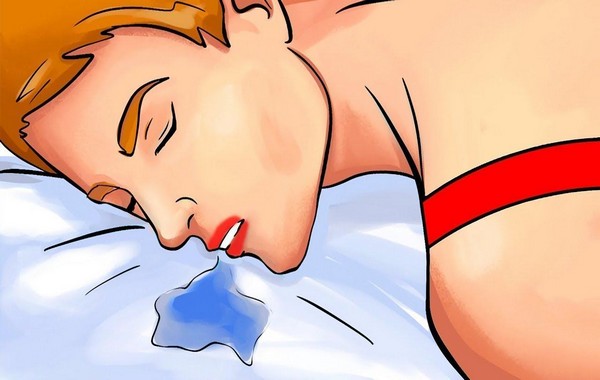Drooling while you sleep might seem embarrassing or inconvenient, but it’s more common than you might think and, in some cases, can be a sign of good health. Here’s why drooling during sleep can be beneficial and what it means for your overall well-being.
What Causes Drooling During Sleep?
Drooling, or sialorrhea, occurs when excess saliva escapes from your mouth during sleep. This can happen for several reasons:
- Relaxation of Facial Muscles: During deep sleep, your facial muscles relax, and your mouth may fall open, allowing saliva to escape.
- Sleep Position: Sleeping on your side or stomach can cause saliva to pool in your mouth and spill out.
- Improved Sleep Quality: Entering deep sleep stages (REM sleep) can increase relaxation and muscle atonia, leading to drooling.
- Nasal Congestion: When you can’t breathe through your nose due to allergies or a cold, you might breathe through your mouth, leading to drooling.
- Excess Saliva Production: Certain foods, medications, or conditions can increase saliva production, contributing to drooling.
Why Drooling Can Be a Good Sign
- Deep Sleep: Drooling is often associated with reaching the deeper stages of sleep, particularly REM sleep. This stage is crucial for cognitive functions, memory consolidation, and overall restorative sleep. If you’re drooling, it may indicate that you’re getting high-quality sleep.
- Relaxation: The relaxation of your facial muscles and the subsequent drooling can signify that your body is in a state of complete relaxation, which is essential for physical and mental recovery.
- Effective Rest: Drooling might be an indication that you’re sleeping soundly without frequent interruptions, which is vital for overall health and well-being.
Potential Concerns and When to Seek Help
While drooling can be harmless and even beneficial, excessive drooling might indicate underlying issues that need attention:
- Sleep Apnea: Frequent drooling combined with other symptoms like snoring, gasping for air, or daytime sleepiness may suggest sleep apnea. Consult a healthcare provider for evaluation.
- Medications: Some medications can increase saliva production. If you notice excessive drooling after starting a new medication, talk to your doctor.
- Neurological Conditions: Conditions such as Parkinson’s disease or cerebral palsy can affect muscle control and lead to drooling. If you have concerns, consult a healthcare professional.
Tips to Manage Drooling
If you find drooling bothersome, here are some tips to help manage it:
- Sleep Position: Try sleeping on your back to reduce the likelihood of saliva pooling in your mouth.
- Nasal Congestion: Address nasal congestion by using decongestants or nasal strips to encourage nasal breathing.
- Hydration: Staying well-hydrated can help maintain normal saliva production.
- Oral Hygiene: Good oral hygiene can reduce the risk of infections or other issues that might contribute to drooling.
- Consult a Doctor: If drooling is excessive or accompanied by other symptoms, seek medical advice for appropriate treatment.










